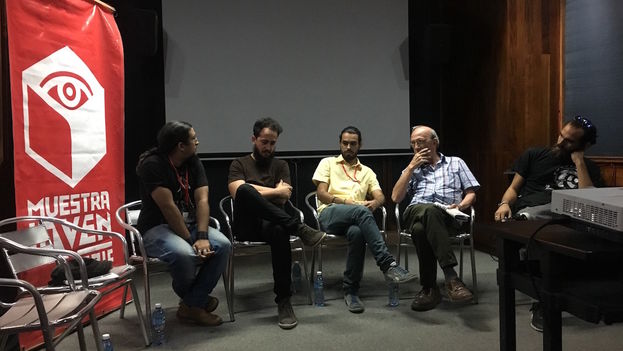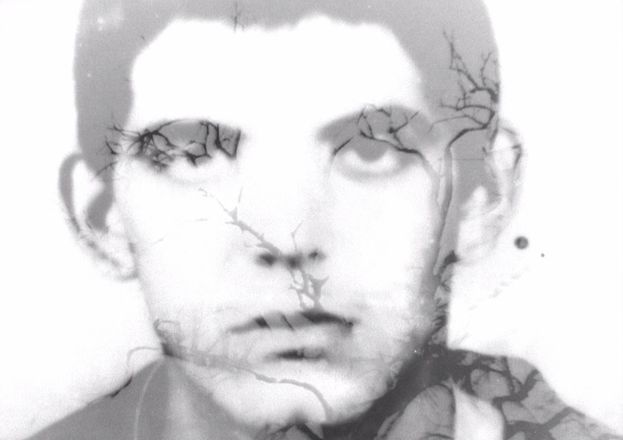
![]() 14ymedio, Luz Escobar, 8 April 2017 – Were the events like the books tell us? Is the official story a report of what really happened? The attempt to answer these questions inspires the documentary and two fictional shorts that were presented Wednesday in the ‘Moving Ideas’ section of the 16th edition of the Young Filmmakers Exhibition of the Cuban Institute of Cinematographic Art and Industry (ICAIC) in Havana.
14ymedio, Luz Escobar, 8 April 2017 – Were the events like the books tell us? Is the official story a report of what really happened? The attempt to answer these questions inspires the documentary and two fictional shorts that were presented Wednesday in the ‘Moving Ideas’ section of the 16th edition of the Young Filmmakers Exhibition of the Cuban Institute of Cinematographic Art and Industry (ICAIC) in Havana.
Under the motto “Forgetting does not exist,” the filmmakers approached collective and family memory to show a point of view often ignored by the epic of Revolutionary discourse. The works probe those memories for what Cubans treasure about moments in national life, beyond the gilded frame that the institutional version attaches to them.
Economic disasters, a war on a distant continent and the drama of family separation after exile, were some of the issues addressed by this new generation of film directors, who show a special interest in looking back. Children of indoctrination and official silence seem willing to shed light on the darker areas of what has happened in the last half century.
Director Pedro Luis Rodríguez offers the short Personal Report set on the eve of the Revolutionary Offensive of 1968 — when all remaining private businesses in the country were confiscated, down to the last shoeshine boy. It was a watershed moment in the economic life of the nation that brought profound effects on commerce, supply and even the mentality of those born after that massive closure of private businesses.
Were the facts as they are told in the books? Is the official story a report of what really happened?
In less than half an hour, Rodríguez shows the conflicts experienced by Ricardo, an analyst on the Planning Board, who is preparing to present a report to his boss on the consequences of the measure that is about to be taken. The protagonist defends his right to participate in the decisions that are made in the country or at least to be heard, but everything is in vain.
Personal Report presents that look from below on a historical event where the decision was taken “on high.” An offensive about which the government has never offered a public self-criticism, although a quarter of a century later the private sector was again authorized to operate. Today, more than half a million workers are struggling to support themselves despite strong legal limits on their activities and economic hardships.

In the discussions with the audience after the screening in the Chaplin room, Rodriguez acknowledged that his film is “a wink” at the current phenomenon of self-employment. His desire is that the work serves to “reflect on this present” and to meditate “on participation and the need to be heard and to be consistent with oneself.”
The flood of memories and questioning continued with the fictional short Taxi, directed by Luis Orlando Torres. Taxi addresses another of the many themes barely touched on by the fiery speeches from those in power: Cuba’s involvement in the war in Angola and its aftermath in society; the plot centers on the physical and mental wounds left by that conflict outside the island’s borders.
‘Personal Report’ presents that look from below on a historical event where the decision was taken “on high.”
Torres focuses on the effects on families and establishes a parallel with the internationalist medical missions that now send Cuban healthcare workers around the world, and their consequences here at home. The film develops a suspense story that begins when a taxi driver picks up a passenger in a seemingly casual way. A brief conversation will suffice to call into question moral aspects of a war, one which the Government has always defended as an act of solidarity.
Meanwhile, The Son of the Dream, directed by Alejandro Alonso and filmed in 16 millimeter with a Bolex camera, relives through family letters and postcards the filmmaker’s memories of an uncle whom he was unable to know due to the separation caused by the Mariel Boatlift. The material is the result of a workshop given at the International Film School of San Antonio de los Baños by Canadian director Philip Hoffman.
Beyond the aesthetic and artistic values of each of the projects presented in ‘Moving Ideas’, it is clear that much of the young cinema that is being produced on the Island is not trying to please institutions or accept pre-established truths. It is an uncomfortable, irreverent, questioning and willing movement to belie an epic story that has been shaped more with silences than with truths.
